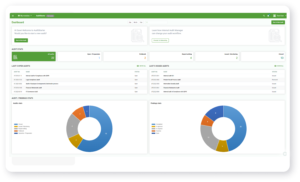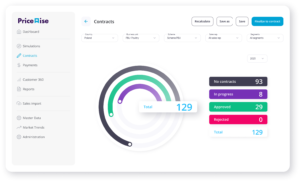Companies are constantly exploring new strategies to enhance their operations and gain an edge. One such strategy is augmenting traditional Enterprise Resource Planning (ERP) systems with specialized software solutions. As businesses evolve, the complexities of their operations often outgrow the capabilities of their ERP systems. This has led many organizations to integrate specialized software solutions that can handle their unique business requirements, providing the flexibility and precision needed to thrive in today’s business landscape.
ERP Systems: A Double-Edged Sword
Enterprise Resource Planning (ERP) systems are comprehensive software solutions designed to manage and integrate all the core processes needed to run a company. While they can be incredibly beneficial in streamlining operations and improving efficiency, they are not without their challenges.
One of the main issues businesses face is the misconception that an ERP system can solve all their operational problems. This belief can lead to a lack of preparation for the complexities and unique challenges that might come their way. For instance, while an ERP system may handle general accounting processes well, it could struggle with specific tasks, such as managing accounts payable. This can result in a backlog of unpaid invoices, strained relationships with suppliers, and a disruption in the supply chain. Therefore, it’s crucial for businesses to understand that an ERP system is not a one-size-fits-all solution. They need to be prepared to seek out and integrate additional tools or software that can address their unique challenges and requirements.
The User Experience Dilemma
User experience is a critical factor in the success of any software solution. Unfortunately, ERP systems often fall short in this area. They are known for their complex and often outdated interfaces, which can be difficult to navigate, especially for less tech-savvy users or new employees.
To address this issue, some businesses are taking steps to improve the user experience of their ERP systems. This can involve updating the system’s interface to make it more visually appealing and intuitive, similar to popular consumer platforms like Amazon. By improving the user experience, businesses can increase user adoption rates, enhance productivity, and reduce the likelihood of user errors.
Misuse of ERP Systems
ERP systems are designed to handle a wide range of business processes, but they are not suitable for every task. A common mistake companies make is trying to force their ERP system to perform functions it was not designed for. This can lead to inefficient processes, data inaccuracies, and ultimately, poor business outcomes.
For example, while an ERP system might be capable of managing simple rebate programs, it might struggle with more complex deals that involve intricate terms and conditions and retrospective calculations. Instead of trying to bend the ERP system to fit these tasks, businesses should consider integrating specialized software solutions that are designed to handle such complexities.
The Complexities of Rebates
Rebates are a common business practice that involves offering customers a refund or discount after they have made a purchase. While simple rebate programs can usually be managed within an ERP system, more complex programs can pose significant challenges.
These challenges arise from the fact that rebates often involve retrospective calculations and collaboration between multiple parties. Each party may have their own interpretation of the rebate agreement, leading to discrepancies in calculations and potential disputes. Furthermore, ERP systems are typically transaction-based, and prefer to focus on current data, making it difficult for them to handle retrospective adjustments.
To effectively manage complex rebate programs, businesses may need to seek out specialized rebate management solutions that can handle these complexities and ensure accurate and fair calculations.
The Importance of Data Management
Data is the lifeblood of any business. It informs decision-making, drives strategy, and provides insights into customer behavior. However, managing data effectively can be a challenge, especially when dealing with large volumes of data across multiple systems.
Inaccurate or inconsistent data can lead to a host of problems, including poor decision-making, inaccurate forecasting, and operational inefficiencies. To prevent these issues, businesses need to implement robust data management practices. This can involve regular data cleansing activities to remove errors and inconsistencies, as well as the implementation of automated tools or software that can assist in maintaining data accuracy and consistency.
Managing Purchase Order Changes
Purchase orders are a critical component of the procurement process. However, managing changes to purchase orders can be a complex task, especially when using an ERP system. This is because many ERP systems are not equipped to handle frequent or complex changes to purchase orders.
To effectively manage purchase order changes, businesses may need to seek out specialized software solutions. These solutions can automate the process of tracking and managing changes, ensuring that all changes are accurately recorded and reflected in the system. This not only reduces the risk of errors but also helps to maintain data integrity, which is crucial for accurate forecasting and decision-making.
Deciding When to Expand Beyond Your ERP System
Deciding when to expand beyond an ERP system is a strategic decision that should be based on a thorough evaluation of the business’s needs and the capabilities of the ERP system. Factors to consider include the functionality of the ERP system, its scalability, cost efficiency, and the potential challenges of integrating additional solutions.
As businesses grow and evolve, their needs and requirements can change. The ERP system that once served them well may no longer be sufficient to handle their expanded operations or more complex processes. In such cases, businesses may need to explore third-party tools or software that can provide the additional functionality they need.


